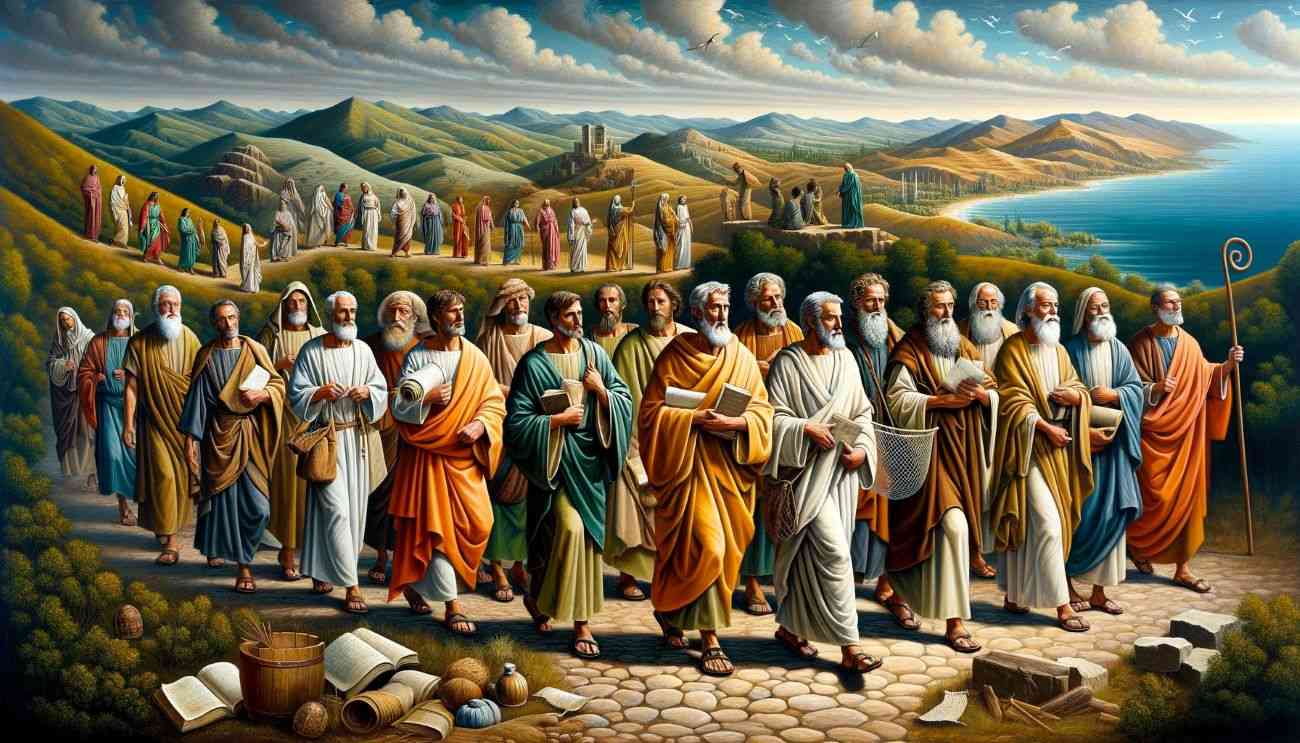
"After this Jesus went to the farther side of the Sea of Galilee that is the Sea of Tiberias. And a great crowd was following Him because they had seen the miracles, which He continually performed upon those who were diseased” (John 6:1-3).
There was always a “great multitude” habitually following Jesus. The word “multitude” is the word ochlus, which describes an innumerable multitude. But if you add the word “great,” which is the Greek word polus, it would translate as a great and innumerable multitude. This was far greater than any multitude Jesus had ever yet attracted to His ministry. They were addicted to Jesus’ ministry because they were seeing the miracles Jesus performed on those who were diseased.
The word “seeing” in the Greek agrees with the word following, which means you would translate the verse: “A great, massive multitude kept on habitually following and following Him, because they kept on habitually seeing and seeing and seeing His miracles that He performed.” The word “performed” is the Greek word epoiei, which carries with it the idea of creativity. They were not merely attracted by the idea of the healing of a headache or a skin disease. Jesus was doing something of a creative nature. The people were regularly seeing Jesus’ miracles that He was creatively performing. Jesus was exercising His power on the diseased and for this reason, they were following and following and following Him.
“Disease” is the Greek word asthenios. In this word is included every kind of sickness and disease. In the four gospels, there are five Greek words that can be translated for sickness and disease. Jesus healed all five categories. The word “healed” in the gospels is the word iomenos. It is the Greek word for a doctor. In Acts 10:38, a literal translation would read, “…went about doing good and doctoring everyone that was oppressed of the devil.” Acts 10 — paints the picture of Jesus laying His hands on the people with all receiving what they needed. Then they went on their way and received a progressive healing touch from Jesus. In addition to the instant healings recorded in the Bible, of which there are many, there is also progressive healing, where people went away from Jesus and were healed as they went.
As highlighted above, there are five words for disease. We find that Matthew uses three of them. Firstly, nosos — sickness or disease that is terminal or incurable. Second, malakian, means diseased or crippled; describes someone who has become a cripple. Third, kakos means someone who is grievously vexed by demon spirits; someone who is in a bad way or emotionally or mentally affected. Fourth, mastogos. In Mark 5 is where we see the woman with the issue of blood.
The Bible tells us when she touched the hem of Jesus’ garment, she was healed of her plague. The word “plague” is the word mastogos. This was a word that described a specific act of torture repeatedly striking until bringing to the point of death, but not allowing to die. A “plague” is a sickness that repeatedly strikes, such as athlete’s foot, allergies, high blood pressure, etc. This woman had an issue of blood for 12 years. It struck her and struck her and struck her — but Jesus healed her. Fifth, arroustos refers to someone who is so physically weak, he has lost consciousness; he is comatose.
This is the word used in Mark 5 where it says, “He could do no mighty works.” This means Jesus couldn’t get those who were conscious to cooperate with Him; therefore, He worked with the comatose and did it on His own.
All of these five categories of words fit right up inside this word disease in John 6:2. This word for “disease” is the word that embraces all of these concepts. There is not one category of sickness in the gospels that Jesus did not heal. Jesus healed every category of disease, and He is still healing them today. In John 6:2, “a great multitude followed and followed him because they were seeing and seeing his miracles which he was creatively performing on them that were diseased.”
- Receiving a miracle from God
Keep Reading
This word “disease” was used very broadly. It referred to all kinds of diseases. In John 6, Jesus went to a mountain to sit with His disciples, but the people found out where He was and began coming and coming by the thousands. It was almost Passover, so there were many traveling this road. Luke’s gospel tells us this was private property near Bethsaida. It was very near to the main road that connected the north of Israel to the city of Jerusalem. John 6:10 tells us there were 5,000 men in number. “Men” is a Greek word meaning only men — excluding women or children. Most scholars believe the number to be closer to 40,000. And when Jesus saw them, He said to Philip, “Whence shall we buy bread, that they may eat?” (v. 5). Jesus taught them till the evening. In fact, He taught them so long that He became concerned that they needed something to eat.
Jesus said this statement to Philip to prove Him. “Prove” is a Greek word that means to test something to find out its quality. Jesus Himself already knew what He would do. He didn’t need to ask the question. The question was for Philip’s sake entirely to prove Him. Philip and the disciples had seen miracles that Jesus did. John said, “If it were possible to write down all the miracles of Jesus, the world could not contain them.”
It took four gospels to contain that! Imagine how many miracles the disciples were seeing! This one question: “Whence should we buy bread, that they may eat?” exposed that even the disciples needed to come up higher in their faith. Philip answered and said, “If we had 200 days of wages, it would not be sufficient to buy enough bread for each to take a little.” Andrew, Simon Peter’s brother, said, “Wait, there is a lad here, a little boy, who has five barley loaves and two small fish.” There was no reason the boy would have five big loaves. The Greek word translated “loaves” is a word that describes barley crackers. “Fish” in the Greek describes fish so small they could fit on top of the crackers.
This little boy had sandwich material. “There’s a boy who has five crackers and 2 minnows, but what are they among so many?” Jesus said in John 6:10, “Make the men sit down.” And then men sat down in number about 5,000. In Mark’s gospel, you find that Jesus was very organised. He had the people sit in ranks and groups of 100 so they would be easier to serve. Jesus took the crackers and gave thanks. Then He distributed to the disciples; the disciples distributed to the people; and they ate until they were filled. 3. In John 6:13, The Greek says they were doubly filled. They filled 12 baskets with the leftovers. Coincidentally, there were 12 baskets and 12 disciples. And this word “basket” describes the bag they used to carry their luggage when traveling. The disciples began to empty their luggage and fill it with the fragments because Jesus didn’t want that anything to be lost.
What is the miracle Jesus is wanting to perform in your life? What is He asking of you? (John 2:11) What is the move of God that’s supposed to happen deep inside your own personal life? What is He asking of you that has revealed your own level of faith and is going to require you to come up to a new level? It’s going to require you to press in. Once you’ve obtained a new level, you don’t ever have to go back to the old. In order to receive a miracle for example healing, you have to see yourself healed first. You have to meditate on the healing scriptures and imagine yourself healed.










